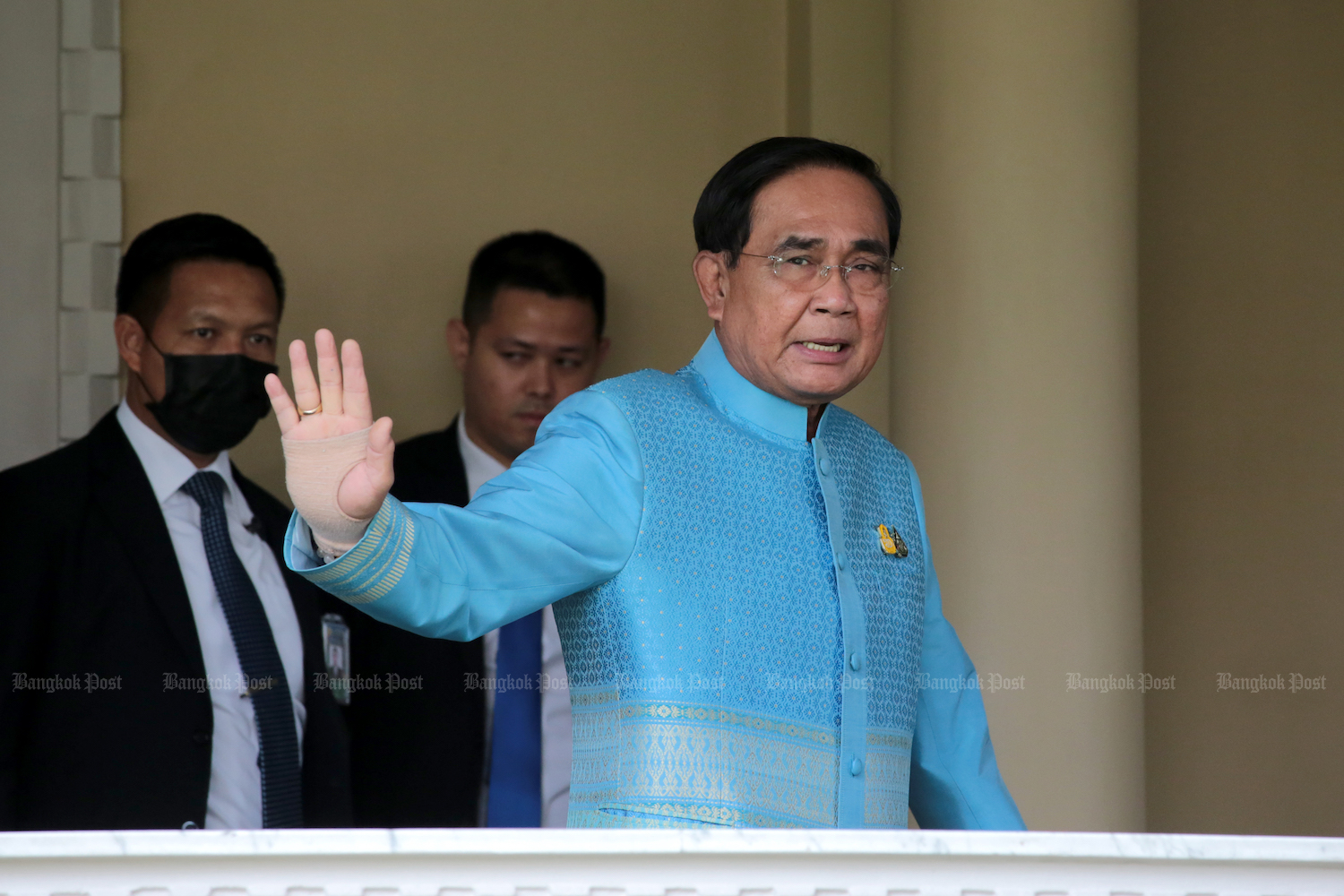
Prime Minister Prayut Chan-o-cha has announced his retirement from politics, nine years after he took power in a coup as army chief.
“From now on I want to quit politics, resigning as a member of the United Thai Nation Party,” he said in a statement released by the party on Tuesday.
Gen Prayut did not run in the May 14 election as a party-list MP but served as the chief adviser to the UTN and one of its two prime ministerial candidates. He will remain caretaker premier until a new government is formed.
Voting to choose the next prime minister is scheduled to begin on Thursday but it is not clear whether Pita Limjaroenrat of the coalition-leading Move Forward Party will be chosen in the first round.
Gen Prayut, 69, said on Tuesday said he had “achieved many successes” in his nine years in office.
“I as prime minister have worked hard to protect the nation, religion and monarchy for the benefit of the beloved people. The result is currently bearing fruit for the public,” he said in a statement.
“I have tried to strengthen the country in all areas for stability and peace and overcame many obstacles domestically and internationally.”
In the nine years since his coup, Gen Prayut survived challenges in the form of court cases, House confidence votes and street protests by opponents who saw him as an opportunist who lacked a public mandate.
The United Thai Nation Party — which Gen Prayut joined only weeks before the election — won just 23 constituency seats, but the prime minister’s personal popularity among conservative voters helped the party win 4.7 million list votes — third behind Move Forward (14.4 million) and Pheu Thai (10.9 million). As a result, it received 13 list seats for a total of 36.
Many voters chose UTN because they believed that even though Gen Prayut was not running in the party list, there was a good chance he could be an “outsider” candidate for the premiership.
As it turned out, none of the parties that could be considered natural allies of UTN did very well at the polls, as Move Forward and Pheu Thai rode a wave of public disenchantment with nearly a decade of army-backed rule
Gen Prayut’s popularity had been falling in the last year, as he battled divisions within his sprawling coalition — barely surviving his fourth no-confidence vote in July last year.
UTN was formed specifically as a vehicle for Gen Prayut when it became apparent that he and his longtime brother-in-arms, Gen Prawit Wongsuwon, could not coexist in the Palang Pracharath Party.
The Prayut government has faced intense criticism over its handling of the Covid-19 pandemic and the economy, with the country recording its weakest economic performance since the 1990s under his tenure.
Large, youth-led pro-democracy rallies that sprang up in Bangkok in 2020 called for his resignation, as well as more wide-reaching reforms that touched on the monarchy.
But Napisa Waitoolkiat, a political analyst at Naresuan University, is adamant that Thailand has not seen the last of Gen Prayut.
“I think he is doing some political strategy, because why now?” she told AFP, referencing the upcoming prime ministerial vote.
“It does not make sense.”
“I would say this is a clear move that Prayut has himself played,” she added, suggesting that his political career was not over.
Born in 1954 into a military family in Nakhon Ratchasima, Gen Prayut rose from military college to become commander of the prestigious Queen’s Guards in 1980.
In 2010, forces under his command opened fire and killed scores of red shirt protesters — mostly supporters of former prime minister Thaksin Shinawatra, who was ousted in a 2006 coup.
Four years later, Gen Prayut launched the latest of the dozen successful coups to have rocked Thai democracy over the last 90 years, ousting the against the caretaker government of Thaksin’s sister Yingluck.
Gen Prayut headed a junta regime for five years before calling an election in 2019. A disputed calculation method employed by the Election Commission, plus the support of all 250 hand-picked senators, delivered the premiership to Gen Prayut.
As the protests against the government gained momentum in 2020 and 2021, Gen Prayut also revived the use of Section 112 of the Criminal Code, the lese-majeste law, against opponents. More than 200 people are still facing lese-majeste charges in cases that are still working their way through the courts.